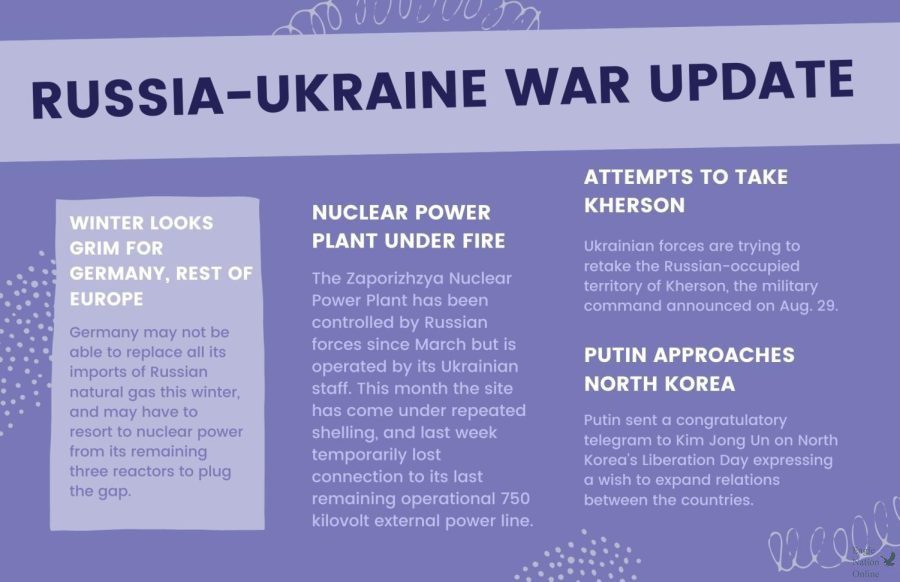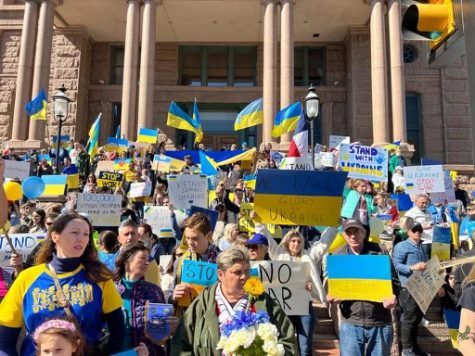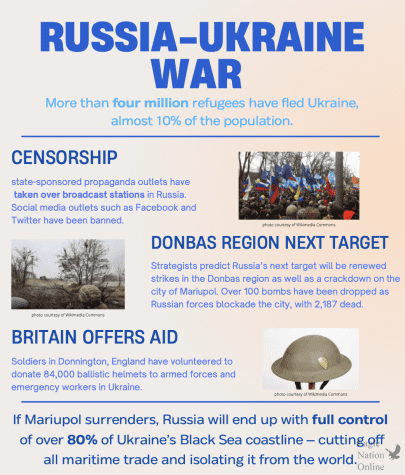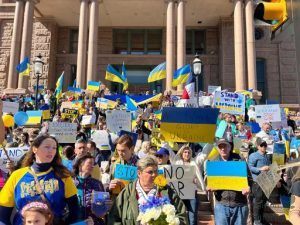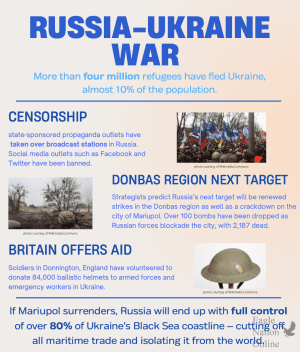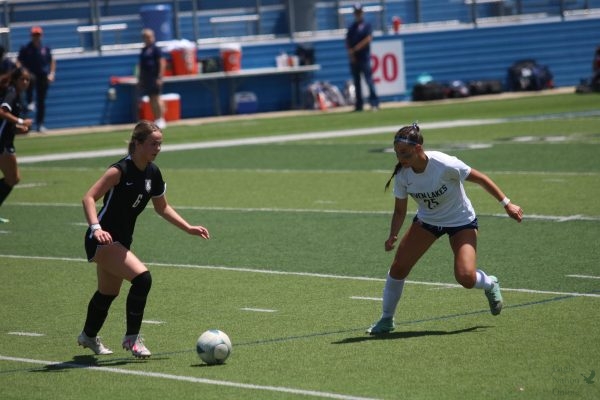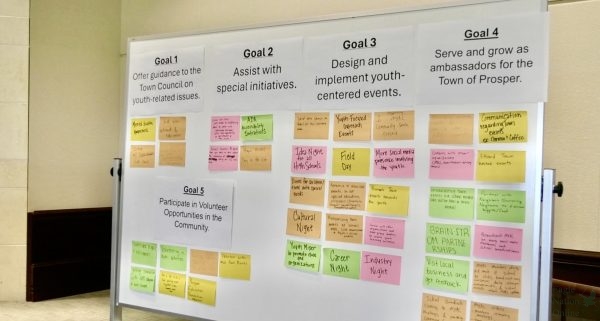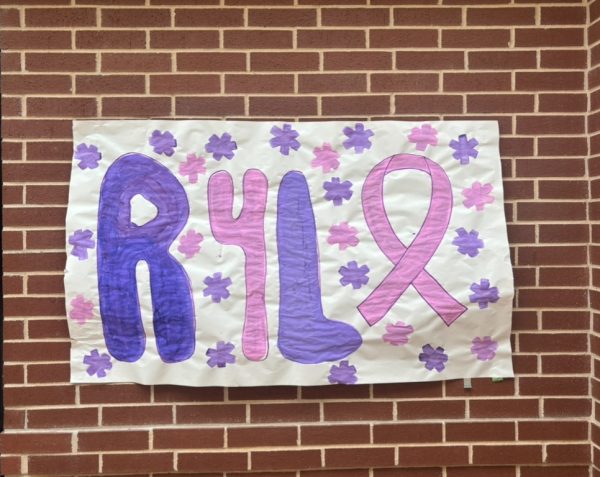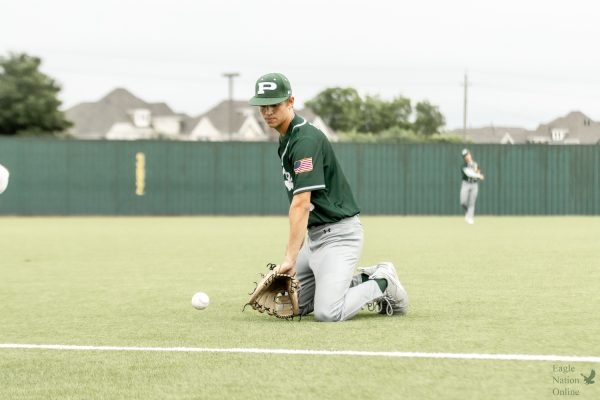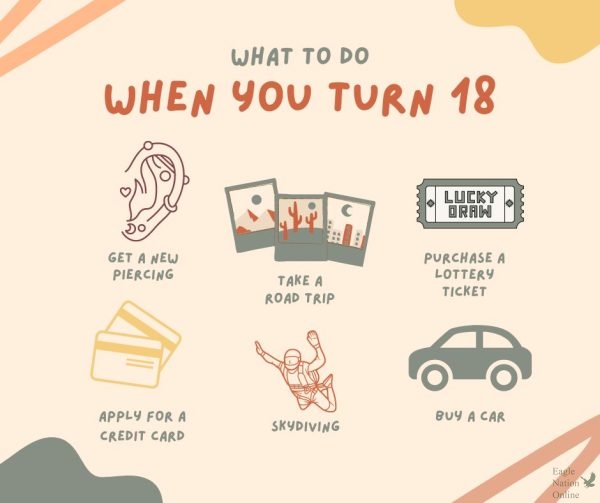Locals speak as Russia-Ukraine war extends into 7th month
PHS students discuss opinions, writer explains recent events
Russia invaded Ukraine Feb. 24, 2022 — although the Russo-Ukrainian war was informally started in 2014. Here’s what you need to know, almost 7 months later. “I think this issue is still relevant, and we should continue to raise awareness about the ongoing war,” Model UN President sophomore Anisha Mandem said. “Although the topic is not being discussed as much in mainstream media, the effects of the war have led to a change in the lifestyle of the people in Ukraine. Especially now that Ukraine is fighting back and may potentially win the war, I think it is important to stay up to date on these current issues.” Graphic courtesy of Canva.
Russia invaded Ukraine Feb. 24, 2022 — although the Russo-Ukrainian war informally started eight years ago. Now, almost seven months later, news of the war has faded from the main headlines of the mainstream media, but Prosper students are still following the coverage that does exist. Putin continues to take military action against Ukraine, and he has extended diplomatic advances toward North Korea. Most recently, he announced plans of Russian nuclear retaliation against Ukraine if they do not surrender Kyiv.
Model UN & JWAC members discuss the war, impact on PISD
Model UN president Anisha Mandem said she believes students should continue to read the news and stay informed about what’s going on in Ukraine.
“I think this issue is still relevant, and we should continue to raise awareness about the ongoing war,” Mandem said. “Although the topic is not being discussed as much in mainstream media, the effects of the war have led to a change in the lifestyle of the people in Ukraine. Especially now that Ukraine is fighting back and may potentially win the war, I think it is important to stay up-to-date on these current issues.”
According to Mandem, Prosper High School’s Model United Nations club plans to discuss the war in-depth in the future.
I know of some members of Model UN as well as some friends that have been directly impacted by the war due to family members living near the war zone. With the ongoing battle, I believe that students and residents of Prosper should continue to raise awareness and support these families that have been affected and are still recuperating from the destruction.
— Anisha Mandem, President of Model UN
“Model UN has previously discussed the access to nuclear weapons that Russia has, which could impact the course of the war,” Mandem said. “We have discussed various peace treaties, allies of these countries, and evacuation procedures that could potentially put an end to the war.”
Model UN members discussed ways the war could possibly end with the help of the UN.
“Initially, we were all looking for solutions for the people of Ukraine to evacuate safely and how the UN and other international organizations can put a stop to Russia’s advances,” Mandem said. “But (due to) recent changes, we are waiting to finalize our stances and solutions.”
Mandem explained how the war personally affected the people she knows.
“I know of some members of MUN as well as some friends that have been directly impacted by the war due to family members living near the war zone,” Mandem said. “With the ongoing battle, I believe that students and residents of Prosper should continue to raise awareness and support these families that have been affected and are still recuperating from the destruction.”
JWAC member and sophomore Addison Hotard also noted the difficulty to find information on the Russia-Ukraine war in mainstream media.
“I shouldn’t have to go deliberately out of my way to find news (about the war),” Hotard said. “It’s something that should be on these big news channels, even if it’s just a short clip. (They could have) mentioned it in the past few months — I’ve only seen it mentioned once on a big news channel.”
According to Hotard, JWAC aims to hold events to raise awareness about the continuation of the war.
“I’m hoping that we can have more coverage and maybe even some sort of speaker event to raise awareness,” Hotard said. “As it changes every day, there isn’t really a way to predict it, but I know we’re hoping for (the war) to end well for Ukrainians.”
Senior Chiemeka Nzewunwah elaborates that individuals in JWAC have discussed possible solutions to the war, with the mindset of a diplomat.
“While our chapter has not done any extensive discussion on this topic with all club members, there are many individual speakers outside of our program who have spoken on the war,” Nzewunwah said. “It has been a generally reached consensus between many (JWAC) speakers, both student and diplomat, that the main path of action to alleviate the conflict is that both nations are positioned on equal standings before any kind of negotiations begin. This includes political and military power, achievable by assistance to Ukraine to balance out the war. Some believe that this equal footing will allow for more fair negotiations, one in which one side is not being pressured into doing anything that they should not.”
Hotard said students should be taught what is going on in Ukraine, whether from parents or teachers.
“Students should learn about it in classes,” Hotard said. “Even if they don’t care, they should at least be knowledgeable on the topic. Even if we aren’t doing anything (personally) to support them directly, we should at least be knowledgeable as it could affect us in the future.”
Senior and JWAC member Hariz Nawaz said the next step to helping bring news of the war back into the public eye is to raise awareness via individual action.
“I think the best way to solve a public problem is public awareness,” Nawaz said. “The next step is for people to care. People are certainly aware, but just don’t care anymore. If we want to get a change, we need people to start doing something about it.”
Nawaz mentioned having personal contacts who are directly impacted by the war.
“It still affects us through the pain we view online and the friends who are directly impacted by this war,” Nawaz said. “I have a friend from Ukraine, and thankfully her family is all in America safe – still she worries for her friends still there.”
I’m hoping that (JWAC) can have more coverage and maybe even some sort of speaker event to raise awareness. As it changes every day, there isn’t really a way to predict it, but I know we’re hoping for (the war) to end well for Ukrainians.
— JWAC member Addison Hotard
Nuclear power plant under fire
Aug. 31, select members of the U.N. International Atomic Energy Agency departed Kyiv for the Zaporizhzhia nuclear power plant to conduct a formal inspection of the area. Both Russian and Ukrainian forces have accused each other of shelling the facility, with Russian forces occupying the plant since March 2022.
According to the Washington Post, IAEA chief Rafael Mariano Grossi said earlier he was “determined” to reach the facility and vowed to push ahead despite the difficulties.
“We must protect the safety and security of Ukraine’s and Europe’s biggest nuclear facility,” Grossi said. “A site visit (is) needed for the IAEA to be able to develop and provide an independent assessment of the nuclear safety and security risks.”
“I think the best way to solve a public problem is public awareness. If we want to get a change, we need people to start doing something about it.
— JWAC member Hariz Nawaz
Russian forces took control of the Zaporizhzya nuclear power plant in March, while the plant continues to be operated by its Ukrainian staff. This month the site has come under repeated shelling, and last week it temporarily lost connection to its last remaining operational 750-kilovolt external power line. According to the Washington Post, Russia’s Defense Ministry claimed a Ukrainian “sabotage group” tried to seize the plant, compelling Russian forces to take measures to “destroy the enemy.”
According to CNBC news, fighting around the facility sparked fears over the heightened risk of a nuclear disaster.
Attempts to take Kherson
According to NBC news, a spokesperson for Ukraine’s southern military command claimed that Russian troops were retreating from some areas where Ukraine launched a counteroffensive.
Ukrainian forces are trying to retake the Russian-occupied territory of Kherson, the military command announced on Aug. 29. President Volodymyr Zelenskyy said he’s confident Ukraine’s forces will push the occupying Russian forces back to pre-2014 borders. However, Russian officials maintain that Ukraine’s offensives are failing.
Putin approaches North Korea
North Korea’s state media outlet KCNA reported Aug. 14 that Putin had sent the North Korean leader Kim Jong Un a congratulatory telegram for North Korea’s Liberation Day, in which he expressed a will to “continue to expand the comprehensive and constructive bilateral relations” between the countries.
Winter looks grim for Germany, rest of Europe
Germany may not be able to replace all its imports of Russian natural gas this winter and might have to resort to nuclear power to plug part of the gap, the nation’s two most powerful leaders said. German government officials chancellor Olaf Scholz and economy minister Robert Habeck emphasized that extending the lives of Germany’s remaining three atomic reactors is only an option because of worries Germany can’t replace dwindling natural gas supplies from Russia.
According to the Guardian, Olaf Scholz said he is working as fast as he can to extricate Germany from its dependence on Russian gas and pursue new energy supplies, as pressure mounts on his government to come up with solutions to tackle a looming crisis. The unprecedented situation threatens to plunge the German economy into recession and leave millions facing soaring energy bills and freezing homes.
“Russia is no longer a reliable business partner,” Scholz said in an interview. “It has reduced gas deliveries everywhere in Europe, always referring to technical reasons that never existed. And that’s why it’s important not to walk into Putin’s trap.”
Future actions
According to Bloomberg News, Ukraine’s parliament voted to extend martial law and military mobilization by another 90 days through Nov. 21. Zelenskyy’s administration also plans to reintroduce a fuel tax as it seeks to boost budget revenue for social and infrastructure projects.
Fighting continues in Ukraine’s eastern Donbas region. Russian forces shelled Kharkiv, Ukraine’s second-largest city Aug. 15, wounding several. Moscow’s troops continued shelling Nikopol city in the Dnipropetrovsk region, knocking out electricity to 3,000 people. Aug. 20, Russian shells in the Mykolaiv region destroyed residential houses in Voznesensk.
Gennady Gatilov, Russia’s permanent representative to the UN in Geneva, told the Financial Times that he didn’t see any possibility of diplomatic contact between the two countries, and warned that the longer the war goes on, the more difficult it will be to find a diplomatic solution.
According to the BBC, western shipments of heavy weaponry — such as US-sponsored multiple rocket launch systems — have made it to the front line in recent weeks, allowing Ukraine to attack from a greater range.
Retired British Army officer General Sir Richard Barrons told the BBC that he had no doubt that the arrival of “some western weapons has made a difference” to the Ukrainian side. On Aug. 24, the US announced a new $3 billion dollar package of military aid to Ukraine — the single largest package since Russia’s invasion — including anti-aircraft missiles, artillery, counter-drone defenses and radar equipment.
President Zelensky most recently appealed for more funding, and he said the monthly cost of defense for Ukraine is about $5 billion dollars.
Your donation will support the student journalists of Prosper High School. Your contribution will allow us to purchase equipment and cover our annual website hosting costs.
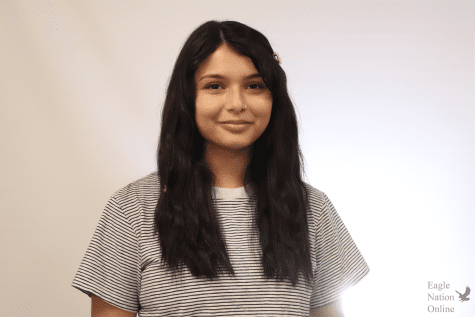
Honors, Experience and Awards:
5 Best of Sno publications.
5th place in Copy Editing, district UIL meet 2021
Honorable mention- Podcast interview, 2021 TAJE Fall Fiesta
UIL Journalist 2020-2021, 2021-2022
Quill and Scroll Society member 2021-2022
1st place in Copy Editing for CENTEX UIL meet 2021-2022
3rd place in Copy Editing for Aubrey UIL meet 2022
2nd place in Copy Editing for NorTex UIL District meet 2022
National Silver award for poetry from the Scholastic Art & Writing organization
National Recognition Award from College Board
AP Scholar with Distinction Award
2 Best in Texas News & Broadcast Awards, 2022: Personal Opinion Column- Honorable Mention, News Story- Honorable Mention
President of the Classic Book Club, 2020-onwards
Member of the National Spanish Honors Society (NSHS)
PHS Award for Academic Excellence in Newspaper II, 2022
Dean’s Scholarship for Cornell University Pre -College Program
Sibley Scholarship for Brown University Pre -College Program
CIEE Global Navigator Scholarship


